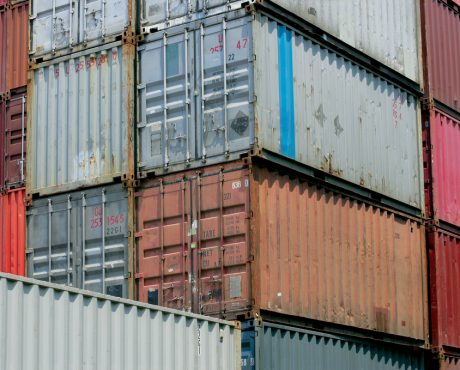Monday 1st August 2016
Manufacturing Supply Chain Interruptions
At a glance:
- A failure in the supply chain can have a disproportionate effect elsewhere in the form of significant business interruption
- The manufacturing sector faces considerable complexities and risk challenges
- Business continuity plans and risk management strategies can help reduce the risk of supply chain disruption
- Two-way communication throughout the supply chain is essential for recognising and managing global risk
What is the risk?
 As commercial interconnectivity increases across the globe, so does the complexity of the global supply chain. The root cause of a supply chain interruption can be very minor and still cause a disproportionate amount of financial, logistic and reputational damage. This naturally creates additional challenges for businesses, but none so much as manufacturers. A report in 2013 by international law firm Fulbright and Jaworski suggests that the manufacturing sector is at considerable risk of regulatory investigation, alongside the energy and healthcare sectors.
As commercial interconnectivity increases across the globe, so does the complexity of the global supply chain. The root cause of a supply chain interruption can be very minor and still cause a disproportionate amount of financial, logistic and reputational damage. This naturally creates additional challenges for businesses, but none so much as manufacturers. A report in 2013 by international law firm Fulbright and Jaworski suggests that the manufacturing sector is at considerable risk of regulatory investigation, alongside the energy and healthcare sectors.
Manufacturing businesses are faced with a wealth of challenges in the modern global supply chain that need to be not just recognised but managed. This includes internal risks, whether they are transportation, logistics, regulatory issues or availability of components. As supply chains stretch across the globe, these internal dependencies become far more tentative and far more difficult to manage.
However, there are also the considerable external risks for manufacturing businesses to consider. Extreme weather and natural disasters can limit access to materials and other resources internationally. The inclusion of other countries and regions in supply chains also exposes manufacturing businesses to economic, social and political risks. The extensive use of marine cargo to transport materials and products can cause additional risks should port-closure or diversion take place.
These risks can have an immediate impact on one link that negatively affects other tiers in the supply chain over time. More importantly, they can happen unbeknownst to other supply chain members and without plans of action in place.
What is the solution?
 A business continuity plan is an invaluable resource for a manufacturing supply chain. Human errors, external risks and internal system failures become more likely and more damaging as supply chains increase in complexity. Therefore, considering alternatives courses of action ahead of time can reduce the likelihood of a significant business interruption.
A business continuity plan is an invaluable resource for a manufacturing supply chain. Human errors, external risks and internal system failures become more likely and more damaging as supply chains increase in complexity. Therefore, considering alternatives courses of action ahead of time can reduce the likelihood of a significant business interruption.
When it comes to international relationships and diplomacy, it’s important to have a risk management strategy in place as soon as these relationships are established or, ideally beforehand. This means that potential disputes can be resolved quickly and practically, thereby avoiding issues with product recall or liability.
There are a number of difficulties when it comes to protecting the system of businesses and suppliers your supply chain relies on, especially with businesses that are unique. Thanks to a number of industry organisations, certifications like SCOR and ISO are available to help your business manage the risks of its supply chain.
Managing your supply chain means understanding the inherent risks and taking steps to prepare for them. This is made all the more efficient when there is effective two-way communication throughout the supply chain. Make sure risk management and planning takes place at each level and there is sufficient reporting to ensure that new information and potential risks are shared throughout your operation.
Find out more about Kerry London’s experience working with and advising manufacturing businesses.
Categories: Corporate,




